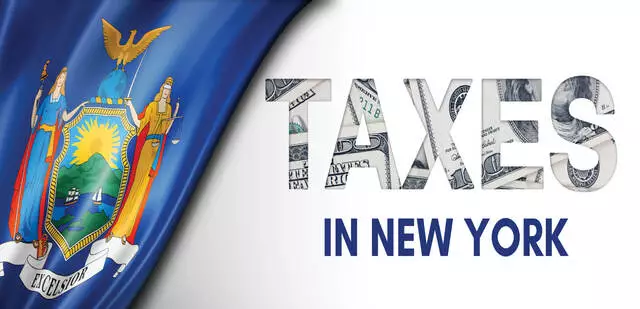
There were no decisions or determinations posted in the last two weeks. There was, however, an order posted each week.
And in other news: Prior to September 27, only lawyers, CPAs, enrolled agents, select employees and officers of businesses, and certain others (those with the Division of Tax Appeals’ permission) could represent taxpayers in matters before the DTA. As the result of a recent law change, taxpayers may now elect to be represented by their niece, babysitter, the kid who cuts their lawn, or anyone else who has achieved the wizened age of eighteen. Heaven help the first pimple-popping Rep that asks Judge Law to adjourn a hearing because it conflicts with their prom.
Orders
Matter of Mohamed (ALJ Baldwin, September 19, 2024); Div’s Rep. Colleen McMahon, Esq.; Petitioner pro se; Article 22/Motion for summary determination (Pete Calleri).
Petitioner filed his New York State resident income tax return for the 2021 tax year and paid a self-assessed amount of tax. In doing so, he allegedly did not report any unemployment compensation he allegedly received. The Division then issued Petitioner a statement of proposed audit change asserting additional tax plus interest on the basis that Petitioner’s 2021 return failed to include the unemployment compensation he received from New York State. Petitioner protested the ensuing notice of deficiency and contested the asserted additional tax arguing that he never received the notice. The Division made a motion for summary determination.
The ALJ denied the Division’s motion, concluding that there remained issues of fact requiring a hearing. Because the Division’s motion papers failed to include a form W-2 or schedule C supporting Petitioner’s reported amounts, it could not be determined whether the amount of unemployment compensation the Division alleged Petitioner failed to include was, in fact, included in his income (albeit on the wrong line). Also, the possibility existed that Petitioner did not receive unemployment compensation at all, but instead was the victim of fraud or identity theft.
Accordingly, the ALJ concluded that the Division failed to make a prima facie showing of entitlement to summary determination and denied its motion.
Matter of Brown (Supervising ALJ Gardiner, September 26, 2024); Div’s Rep. Jennifer Hink-Brennan, Esq.; Petitioner pro se; Article 22/Motion to vacate default (Zoe Peppas).
Petitioner filed a petition for redetermination of a deficiency or for refund of personal income tax for the year 2015. A virtual formal hearing was scheduled for June 2023. Petitioner failed to appear, so a default determination was issued eight months after the hearing. Four months later, Petitioner filed an application to vacate the default determination. The Division filed a letter in response.
Petitioner had originally appeared at the virtual hearing. But at the start of the hearing, there were “minor technical difficulties” and neither party was able to hear the ALJ. The Judge determined the issue was resolved. However, in the view of the Judge, Petitioner did not try to effectively participate. Petitioner joined the hearing by cell phone originally, but then decided to use the landline phone at her work location. Here was Petitioner’s participation over the landline: “I work in a hospital that’s closing down, and I still can’t hear you guys. Hello. I can’t hear you guys. This is ridiculous.” And, during the hearing, “Petitioner repeatedly stated that the hearing needed to be rescheduled.” The ALJ instructed Petitioner to download Webex to participate. Petitioner refused to do so (ed.: an eighteen-year-old probably could have helped her download the App), and eventually disconnected herself from the hearing. The ALJ then tried to contact Petitioner by telephone, and she did not answer. The ALJ then tried to contact Petitioner by email warning that if she did not rejoin the proceeding, she would be held in default. Petitioner did not respond to the emails.
Even after all of that, the ALJ allowed Petitioner time to contact the Division regarding the hearing. Petitioner never contacted the Division. Eight months later, the ALJ issued the default determination.
Four months after the default determination was issued, Petitioner filed an application to vacate the determination, arguing she had a personal matter that required her to disconnect from the hearing, and that she “had to support 5 children with no help.” But Petitioner did not submit any proof of such personal matter or reasoning for failing to appear. Neither did she provide any evidence that her case was meritorious. And in an interesting but tax-irrelevant turn of events, Petitioner then argued her HIPAA rights were violated because the Division had communicated with her via her personal email. (ed.: Is TiNY violating her HIPAA rights by publishing this blog?)
The application to vacate the default determination was, understandably, denied.



